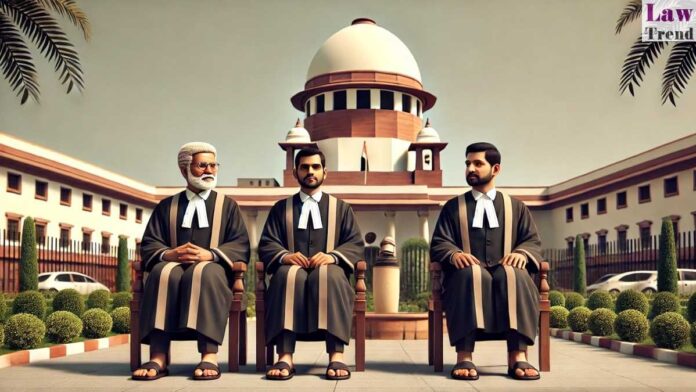In a significant development, a three-judge Bench of the Supreme Court on Tuesday placed before Chief Justice of India Sanjiv Khanna the suo motu proceedings initiated against a decision of the Lokpal of India to entertain a complaint concerning a sitting High Court judge.
The matter came up before a Bench comprising Justices BR Gavai, Surya Kant, and Abhay S Oka, which has been handling the case over the past few months. Referring to judicial propriety and the operative part of the Lokpal’s order that itself deferred consideration of the complaint pending the Chief Justice’s guidance, the Bench directed that the issue be placed before a Bench led by the Chief Justice.
Justice Abhay S Oka observed that the matter involved questions which must be addressed by a CJI-led Bench, specifically pointing to the relevant passage in the Lokpal’s January 27 order which stated:
“Awaiting the guidance of the Hon’ble the Chief Justice of India, consideration of these complaints, for the time being, is deferred until four weeks from today, keeping in mind the statutory time frame to dispose of the complaint in terms of Section 20(4) of the Act of 2013.”
The background of the case involves a complaint accusing a sitting judge of a High Court of influencing another High Court judge and an Additional District Judge in favour of a private party in a civil dispute. The complaint was filed before the Lokpal of India, which is currently headed by former Supreme Court judge Justice AM Khanwilkar.
In its impugned order, the Lokpal ruled that a judge of a High Court could fall within the purview of Section 14(1)(f) of the Lokpal and Lokayuktas Act, 2013, which includes “any person who is or has been a director, manager or officer or employee in any body or Board or corporation or authority or company or society or trust or autonomous body established by an Act of Parliament or wholly or partly financed by the Central Government.”
The Lokpal reasoned that since the High Court in question was constituted for a newly created State by an Act of Parliament, the judges of such a court would fall within the sweep of this provision. The order stated:
“It will be too naive to argue that a Judge of a High Court will not come within the ambit of expression ‘any person’ in clause (f) of Section 14(1) of the Act of 2013.”
However, the Lokpal clarified that its decision was confined solely to the issue of jurisdiction and not the merits of the complaint. The order recorded:
“We make it amply clear that by this order we have decided a singular issue finally — as to whether the Judges of the High Court established by an Act of Parliament come within the ambit of Section 14 of the Act of 2013, in the affirmative. No more and no less. In that, we have not looked into or examined the merits of the allegations at all.”
Notably, the Lokpal had in the past held that it does not have jurisdiction over Judges of the Supreme Court or the Chief Justice of India, since the Supreme Court is not established under a Parliamentary enactment.
On February 20, while staying the Lokpal’s order, the Supreme Court had expressed concern about the reasoning adopted by the anti-corruption ombudsman. Justice Gavai remarked that the reasoning was “something very disturbing.” The Bench also observed that since the inception of the Constitution, High Court judges have been treated as constitutional functionaries, not statutory ones, as the Lokpal seemed to suggest.
During the hearing on March 18, Solicitor General Tushar Mehta and Senior Advocates Kapil Sibal and B.H. Marlapalle appeared and advanced arguments opposing the Lokpal’s jurisdiction in this matter. To ensure a balanced adjudication, the Court appointed Senior Advocate Ranjit Kumar as Amicus Curiae. Justice Gavai emphasised that the Bench would restrict itself to examining the question of jurisdiction and would not enter into the merits of the complaint.




